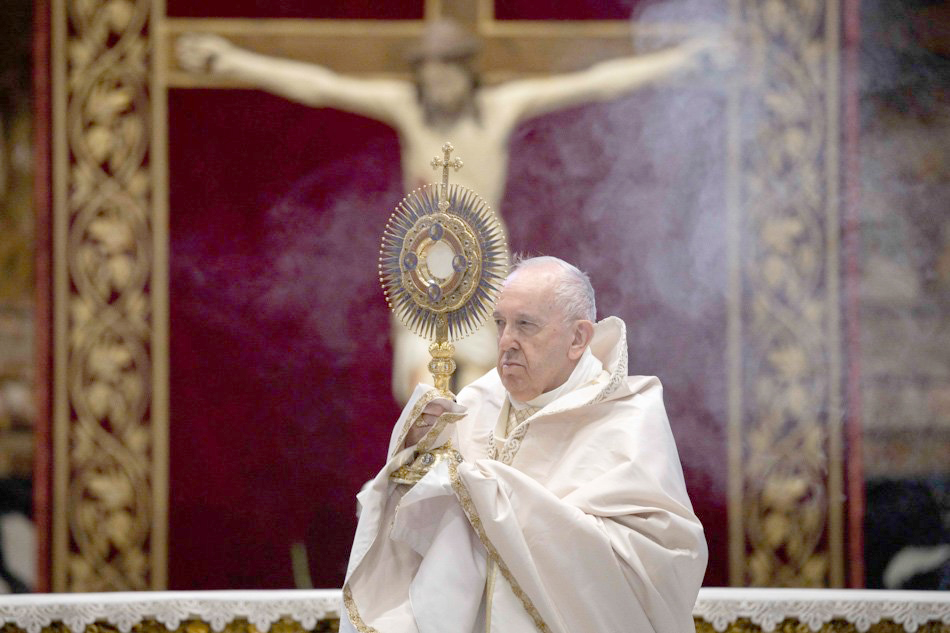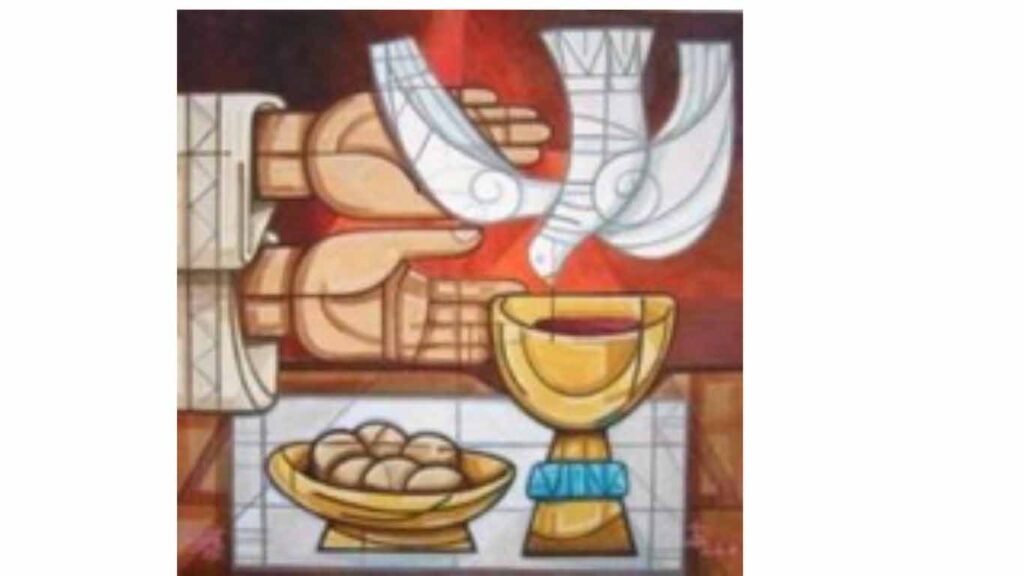
CORPUS CHRISTI 2020, by Fr. Bill Kreutz, SJ
THE WORD
St. Paul’s First Letter to the Christians in Corinth 10.16-17
One Bread-One Body
16 The cup of blessing that we bless, is it not a participation in the blood of Christ? The bread that we break, is it not a participation in the body of Christ?
17 Because the loaf of bread is one, we, though many, are one body, for we all partake of the one loaf.
REFLECTION AND PRAYER
A little background:
The earliest mention of the Holy Eucharist in the New Testament is found in St. Paul’s First Letter to the Corinthians written in the early 50s of the first century. It is assumed that there were already traditions about what happened at the Last Supper circulating among the early Christians, but the Gospels were compiled and written and circulated only at a later time.
In Chapter 11, verses 23-26, St. Paul says that he received personally from the Lord what had happened in the Last Supper in regards to the Eucharist. He does this to establish authority to guide the Corinthians in their celebration of the Eucharist. It was noted that there were strong distinctions made among various members of the community. This did not match well. The sense of unity that should come from sharing one bread. He spends much time on how people ought to act at Eucharist with a strong sense of sharing.
These verses and many other verses in that first letter of Paul to the Corinthians talk about the Eucharist and its central role in the early church in Corinth. But, he had found many abuses – and so he had to tell the people, remind people, remind Christians what they had received from Jesus.
Our reading from today’s Holy Mass focuses on the unity that should be in the Church. Since all share of the one Body and Blood of Jesus.
As possible, take time, make time, to read that first letter to the Corinthians; it tells us much about styles and customs in the early church as perceived by Paul and it reminds us, even today, the sharing that should be going on.
A further note:
Those words: he took the bread, said the blessing, broke the bread and gave it to those gathered around. These words must have been very sacred for the early Christians. These words show up in the feeding of the 5000, and 4000, the meal of the men at Emmaus, and, of course, the very words of Jesus at the Last Supper. And now, 2000 years later we still use the same words. These are the words that the freest repeat over the bread and the wine. 2000 years of continuity with Jesus – we still believe!
Take some time to pray; to offer thanks Jesus’ life for our lives, everyday, for us.

I chose the image above because it showed not a loaf to be broken and shared, but small hosts already on the dish to be shared among all the faithful.
With such great numbers of believers of Catholics, it is just about impossible to “break bread” in the common use of the term.
We accept the limitations of very simple bread made into the hosts that, by God’s power, become the Body and Blood of Jesus.
A prayer of thanks for this gift, this power given to the Church.
To be able to receive Holy Communion is a bond of unity – or should be – it is a moment to reach out to others. Our thoughts and our prayers
- all in the church gathered with us
- all on the line to receive Holy Communion
- all we will encounter during our day – family, friends, partners at work, even strangers along the street or on the bus
In that one bread, we reach out to a whole world – that is what we pray – like Jesus, who offered himself for all.
Lastly, this is a most difficult time for all who want to receive the holy Eucharist – we just can’t – but we do have that wonderful custom of “Spiritual Communion” which helps us as we watch Mass on television or on our mobile phone.
We pray for one another even though so far apart; Jesus is with us – and we with him – and with all believers.
The church has two very special possessions (among many); the Holy Bible and the Holy Eucharist. These are our precious possessions. Again, a deep, warm prayer of Thanksgiving.
Extra!
Below are two wonderful music pieces celebrating the Holy Eucharist:
A wonderful and comfortable: Ave Verum — True Body — music by Amadeus Mozart
(You can find a translation into English on Google)
A mantra for the week: Your Body and Blood – Thank You Lord!